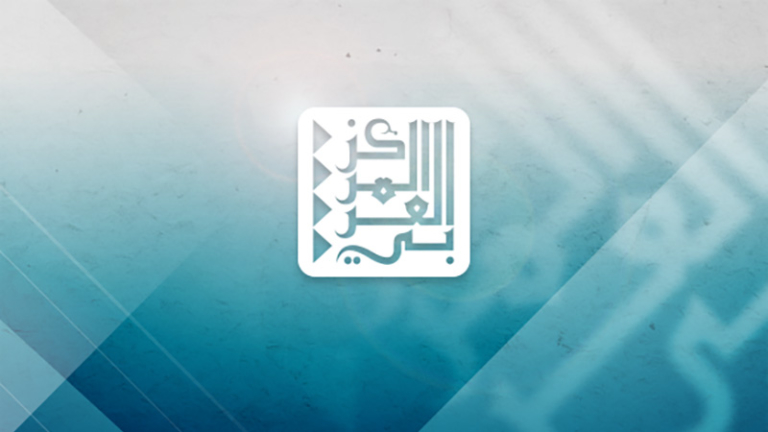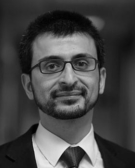
The military victory in Mosul will not be sufficient unless the United States finds a political resolution, in cooperation with local parties, that addresses Sunni grievances and fears in Nineveh.
The discussion on Mosul often comes with an underlying assumption: when ISIS is wiped out, the Sunni Arab resentment will gradually fade away by accepting the reality on the ground. The military victory over ISIS, however, will not usher peace in Iraq unless Washington actively assumes a leadership role in local political bargaining. Recent escalation in the rift between the Turkish and Iraqi governments attests to the complex problems that will be faced by the Trump Administration after the Mosul operation. The marginalization and exclusion of Sunni Arabs has long been the primary driver in explaining the emergence of insurgent mobilizations in Iraq. The Islamic State is not the first, and perhaps not the last, group that exploits growing Sunni Arab frustration in the region.
Looming Dangers of Military Opportunism
The Trump Administration will face compound and most difficult challenges in Iraq, including a weakening economy and rising turmoil in Iraqi Kurdistan. The rich oil reserves of Mosul and Kirkuk, multiplied by the ethnic and religious diversity of the region, further complicate the political negotiations. Local solutions, such as federalism, need nuanced balancing acts that entail a political leadership among competing groups—and the lack thereof would push parties to seek preemptive measures and unilateral military gains to increase their leverage. Such preemptive moves could serve as self-fulfilling prophecy. Turkey’s President Erdogan was clear in uttering such psychology of fear, “We will not wait until the blade is against our bone and skin, we will not wait for terrorist organizations to come and attack us!” Sectarian fears are even more prominent inside Iraq. “Sunnis are afraid of their past, Shiites are afraid of their past, Kurds are afraid of what happened against them in the past,” said Kurdish Regional Government (KRG) PM Nechervan Barzani, “This is the reality of Iraq.”
Ankara’s Mosul conundrum reveals rising sectarian competition. In 2011, Erdogan’s visit to Baghdad was welcomed by cheers from Muqtada Al-Sadr supporters. The Shiite group now organizes demonstrations in the Turkish Embassy in Baghdad, with the slogans “Occupier, get out!” Mosul’s proximity to Sinjar region in Northern Iraq—the region that received global attention after ISIS attacks on the Yazidis—is one of the significant factors feeding Turkey’s fears. After Yazidis were saved by its guerrilla fighters, the Kurdistan Workers’ Party (PKK) has gradually established a stronghold in Sinjar, raising eyebrows among Kurdistan Regional Government leadership. Given Turkey’s ongoing war with the PKK and its affiliate YPG in Syria, Erdogan’s support for the Barzani regime has consolidated a broad counter-alliance including Kurdish opposition parties in the Sulaymaniyah region, the Gorran movement (Movement for Change), and PKK/YPG forces. Facing economic downturn and ongoing war on ISIS, the Kurdistan Regional Government (KRG) shares Turkey’s fear that Iran has become a dominant player in the Sulaymaniyah region of Iraqi Kurdistan, and thus, is apt to exacerbate existing divisions in the country. Economic downturn after the war on ISIS, declining global oil prices, increasing unemployment rates, widespread corruption, and pervasive nepotism led to mass grievances, especially observed among estranged youth. In Iraqi Kurdistan, 36 per cent of the population is under the age of 14; the median age is just above 20—which means that half of the total population is below the age of 20.
Rising Sectarian Fears in Disputed Territories
Increasing tensions in the Mosul operation may have long-term implications for Iraqi Kurdistan. Recent advances by Hashd al-Shaabi (the Shia militias known as the Popular Mobilization Units) for the liberation of Tal Afar, a city of 100,000 people strategically-located 60 km west of Mosul on the way to the eastern Mediterranean coast, is a case in point. Tal Afar is a predominantly Sunni Turkmen region—80 per cent before the ISIS advance in 2014— and strategically located between Mosul and Sinjar. Historically an Ottoman garrison city, Tal Afar and its Sunni Turkmen population have often found in Turkey its protector in the mostly multi-ethnic Nineveh region. Both Erdogan and local Sunni leaders repeatedly implied direct Turkish military intervention in case Shia militias enter the town. On the other hand, given that Al-Qaeda in Iraq and later ISIS found a stronghold in Tal Afar, the Shia militias perceive Sunni Turkmens as despised collaborators with the enemy. Some Shia leaders reinforced the Sunni fears, making public statements such as “We are coming to Tal Afar to avenge Hussein!” and appealing to the collective Shia memory of Imam Hussein’s martyrdom in the 7th century. If things go uncontrolled, tensions in Tal Afar may trigger a serious conflict in northern Iraq.
Islamic State’s surprise attack on Kirkuk indicates how the militants will continue to exploit increasing sectarianism in disputed territories surrounding the Mosul region. ISIS especially penetrated such territories where Arab forces, foreign fighters, and Kurdish Peshmerga engaged in a fierce battle along the Kurdistan Regional Government’s (KRG) new 1,000-kilometer (621-mile) frontline. The frontlines in the area also witnessed massive waves of migration by displaced Sunni Arabs who now constitute more than 20 per cent of Kurdistan region’s population. The possibility of ISIS infiltration has long alarmed Kurdish authorities to impose enhanced border security measures and strict travel limitations on the Arab population. Such measures, however, could exacerbate the ongoing tensions as Sunni Arabs continue to feel alienated. In a survey in 2015, only 13 percent of Iraq’s Sunni Arab population expressed that their central government in Baghdad was heading in the right direction. Sunni disenchantment leads tribal leaders to seek help from Turkey and other regional powers, which -in turn- perpetuates ongoing rifts between the Iraqi central government in Baghdad and Sunni leaders. Thus, without addressing the future of Sunni Arabs, the United States cannot possibly address the question of Iraq’s future.
Wanted: A True Political Leadership and a Serious Road Map
To put it bluntly, a unified Iraq is an unrealistic dream without the adequate allocation of resources to empower local communities. Forming a federal Nineveh region can be a political road map that would alleviate sectarian tensions after the liberation of Mosul. Power-sharing and decentralization should support not only the Sunni Arab majority but also Christian minorities, Yazidis, Turkmans, Shabaks, and other groups. A federal structure will set the institutional mechanisms needed for a smooth transition in Mosul and the surrounding region after the military victory over ISIS. As the flow of the refugees from Mosul is expected to reach massive numbers—hundreds of thousands, mostly Sunni Arabs—stability in Nineveh will be tied to the question of Sunni Arab hopes about the future. Negotiations on disputed territories will be an arduous task, which can only be achieved through the setting of institutional infrastructure at local levels in the long-term.
The current political transition in the United States may encourage all parties in the conflict to ratchet up their militaristic advances and create new realities on the ground. If sectarian fears captivate the Nineveh region and threaten Iraqi Kurdistan, however, fragile Iraq will be shattered forever. The Trump Administration will need to assume a serious political leadership role to mitigate rising sectarian fears in Iraq. As few US military commanders admitted, the Mosul operation will take quite a long time, likely to become one of the bloodiest battles since the US invasion of Iraq. Thus, awaiting the military outcome for political negotiations may become perilous. Mosul will not be truly liberated without a political solution.

